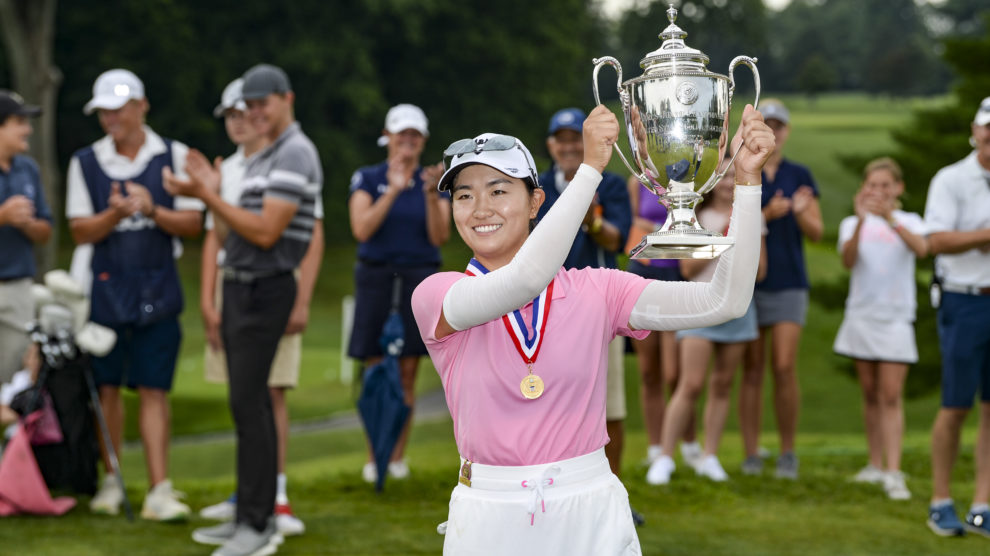Rose Zhang has turned professional after one of the most decorated and celebrated amateur golf careers in history. She won the US Women's Am, US Girls Junior Am, back-to-back NCAA women's national championships, the Augusta National Women's Amateur and played on the Curtis Cup team.
Now she enters the professional ranks, and she'll have opportunities to play in major championships and LPGA Tour events alike.
How exactly, though, does a golfer turn professional? Is there a formal process to do it?
How does a golfer turn professional from being an amateur?
As of 2022, the R&A and USGA, the governing bodies in the game of golf, no longer define who is or isn't a professional golfer. Rather, they have determined all golfers have amateur status unless they meet one of five criteria:
- Accept a prize that is not allowed under Rule 3: Prizes (a limit of $1,000, limited to golf tournaments)
- Play in a golf competition as a professional
- Accept payment or compensation for giving instruction that is not allowed under Rule 4: Instruction
- Are employed (including being self-employed) as a golf club or driving range professional
- Hold membership of an association for professional golfers
In other words, a golfer doesn't declare that they are a professional to the USGA or R&A. They are deemed to be a professional, instead, by their actions and associations. In the case of an amateur player becoming a professional golfer, they declare at their first professional event that they are a professional and will accept any prize money they earn. Once they take the money earned in an event, they are deemed a professional (technically, non-amateur) by the governing bodies of the game unless they apply for the reinstatement of their amateur status at a later time.
Golfers can also become professionals by taking money for giving instruction, working as a golf club professional or belonging to a membership association for professional golfers like the PGA of America or the LPGA.
Can anyone turn professional in golf?
Any golfer can turn pro, pretty much at any time. While there are skill requirements needed to compete in most professional golf tournaments or to obtain membership in a professional golf association, a golfer could be considered a professional by virtue of taking payment for instruction that is prohibited by the Rules of Amateur Status. That doesn't mean a pro golfer is better than an amateur golfer. It just means they're willing to take money for their services or in competition.
This distinction is not only important for professional tours, but it's more important for amateur competitions that need to know if players are eligible to compete in amateur-only events, which there are way more of around the world than pro-only events.

